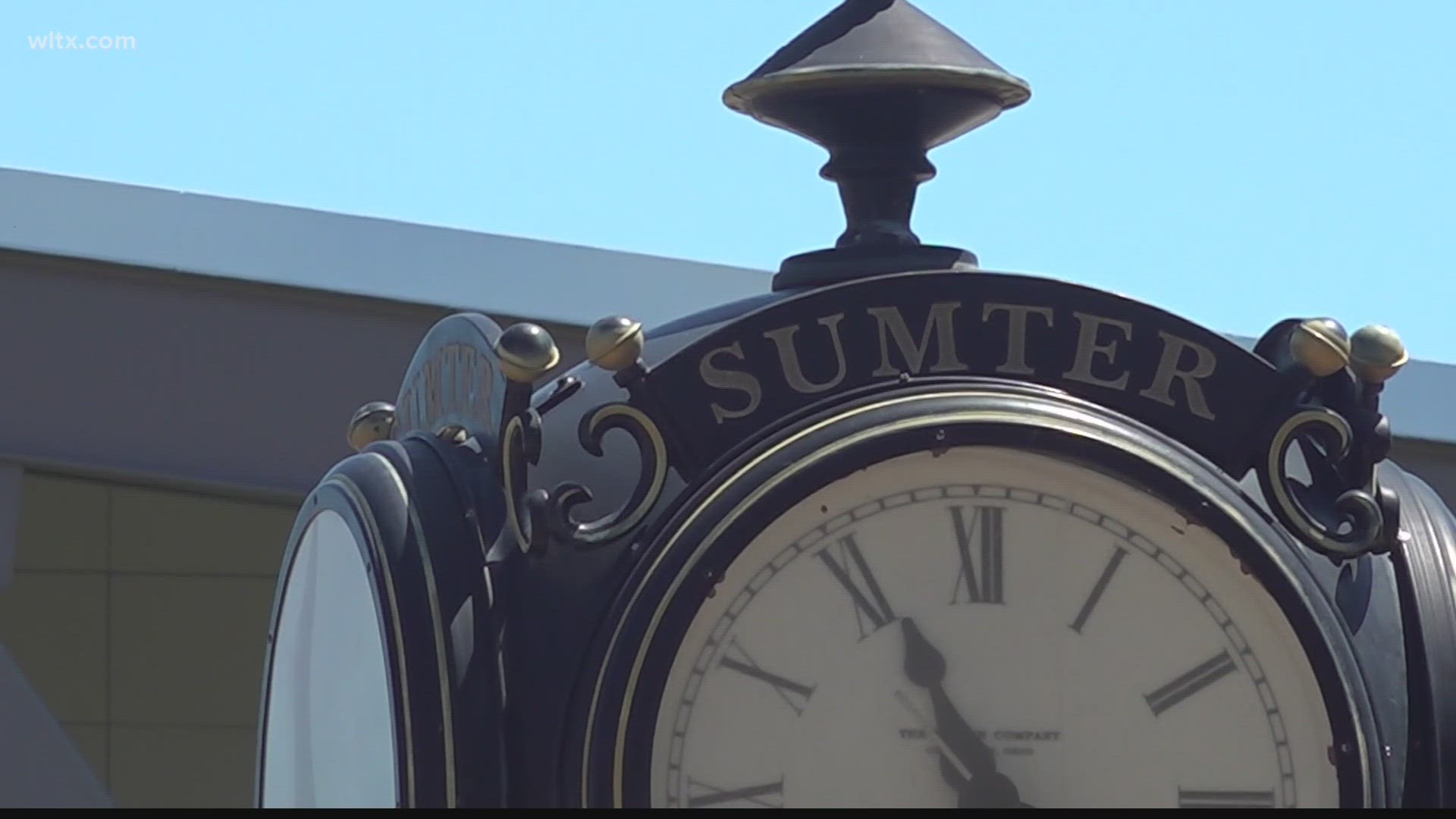SUMTER, S.C. — Revoking, suspending or denying a business license is something the city of Sumter can do now if you’ve been convicted of certain crimes within the past 10 years. City council has adopted a new ordinance amending sections of its code.
“Everybody, you know, should get a second chance at being able to start over or actually get a clean slate per se,” Derek Gamble, the executive director of Clean Slate Re-Entry Program, shares. “I am a formerly incarcerated person and I was able to get out and actually turn my life around and I’ve been able to actually start a nonprofit to actually help others that follow behind me.”
The program is a 12-month transitional housing program for formerly incarcerated people where they get out and practice six main principles: livelihood, residency, criminal justice compliance, family, health and social connections.
Before starting the nonprofit, Gamble served three years in prison, eventually getting out in 2011.
“I'm a former drug dealer and I actually had cocaine distribution charges and quite a few other charges over the past 20 years,” Gamble explains. “I was able to get a pardon for eight charges that were on my record. I was able to give five of them expunged, so that totally cleared my record where I could get the positions and the titles that I have today.”
As soon as he was released, Gamble tells me he opened a hot dog stand and set up in front of the local library. Through operating this business, Gamble tells me he got back on his feet. Now, a new ordinance might make ventures like this harder for some. Sumter Mayor David Merchant says Ordinance 2824 will make it so business licenses could be harder to obtain for people with a certain criminal background.
“If those folks have a history, a prior history and public endangerment, then obviously they don’t need to be in business that will tempt them or put our citizens at risk to go down that path again,” Merchant tells me.
Merchant says it would be up to the discretion of a city official who issues licenses.
“It gives them the opportunity to deny it, but it doesn't require it,” Scott Slatton with the Municipal Association of South Carolina (MASC) says. “And if they have questions about any of any of the items that are on that application, then it gives them the opportunity to go back to the applicant, ask clarifying questions, and get details about some of the things perhaps that they’ve put on that application. And so it gives the applicant the opportunity to clear up any questions and it gives the business license official the opportunity to ensure that they can move forward in a legal way and allow that business to get going and to contribute to the fabric of the community.”
MASC works with cities and towns throughout the state to help draft various ordinances, including this change in Sumter.
“It's a consumer protection measure certainly first and foremost, to make sure that people who are operating businesses in the city don't have prior histories of fraud or violent convictions perhaps,” Slatton details. “But that's the number one goal is to make sure that the businesses operating in a city are doing so legally so the consumer is protected, the public is protected from perhaps unscrupulous actors.”
But for people like Gamble, who now runs his nonprofit to help other formerly incarcerated men, this can make it hard for people to reintegrate after being released from prison.
“In a certain way, it’s pushing them back to a life of crime. If you can't get a job and you can't open a business, what else is there?” Gamble asks. “It is very difficult for people that are formerly incarcerated to re-enter because many times when they are incarcerated, they lose everything. Many times they end up taking a credit hit because they have bills and things that are actually still outstanding when they go and become incarcerated so they actually start out with nothing.”
Slatton says there is an appeals process for people who feel they have been unfairly denied a license. Ultimately, Gamble says there is another option.
“I encourage a lot of formerly incarcerated people to use the pardon and expungement pardon process to actually clear the record so that things like this won't be a hindrance to them,” Gamble says. “Expungement is a destruction of a criminal record if it qualifies in whatever state you got the charge in. All charges are not able to be expunged. But in the state of South Carolina, if there is a charge that cannot be expunged, they can apply to the Department of Probation, Parole and Pardon Services and actually have any charge considered for a pardon. A pardon is a formal forgiveness of a charge. It will show up, but when you’re approved for a pardon, it will actually restore all rights that were taken.”
Gamble says since operating the re-entry program in 2017, over 400 men have participated in the program. Gamble tells me that across the state, about 65% of people who apply for a pardon are granted one.
Slatton says Sumter is not the only city to institute this policy. Other municipalities across the Midlands have a similar section, he explains.
“And that's a long standing part of business license ordinances have been around for 40+ years,” Slatton says.
To learn more about how to get involved with Clean Slate Re-Entry Program, Gamble says you can contact him through his social media pages.

